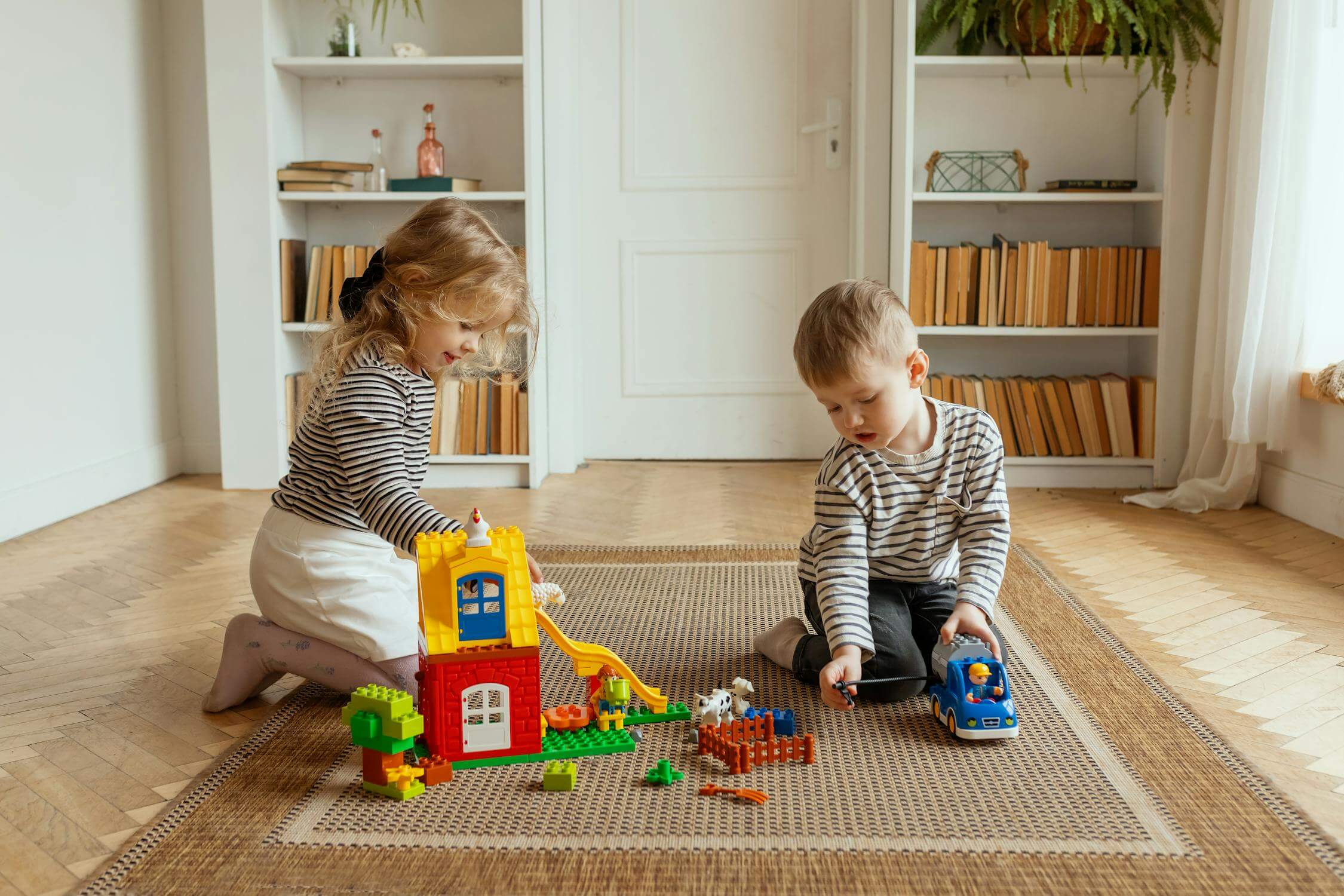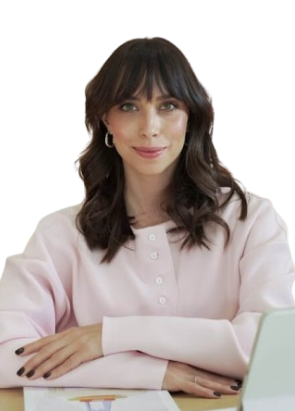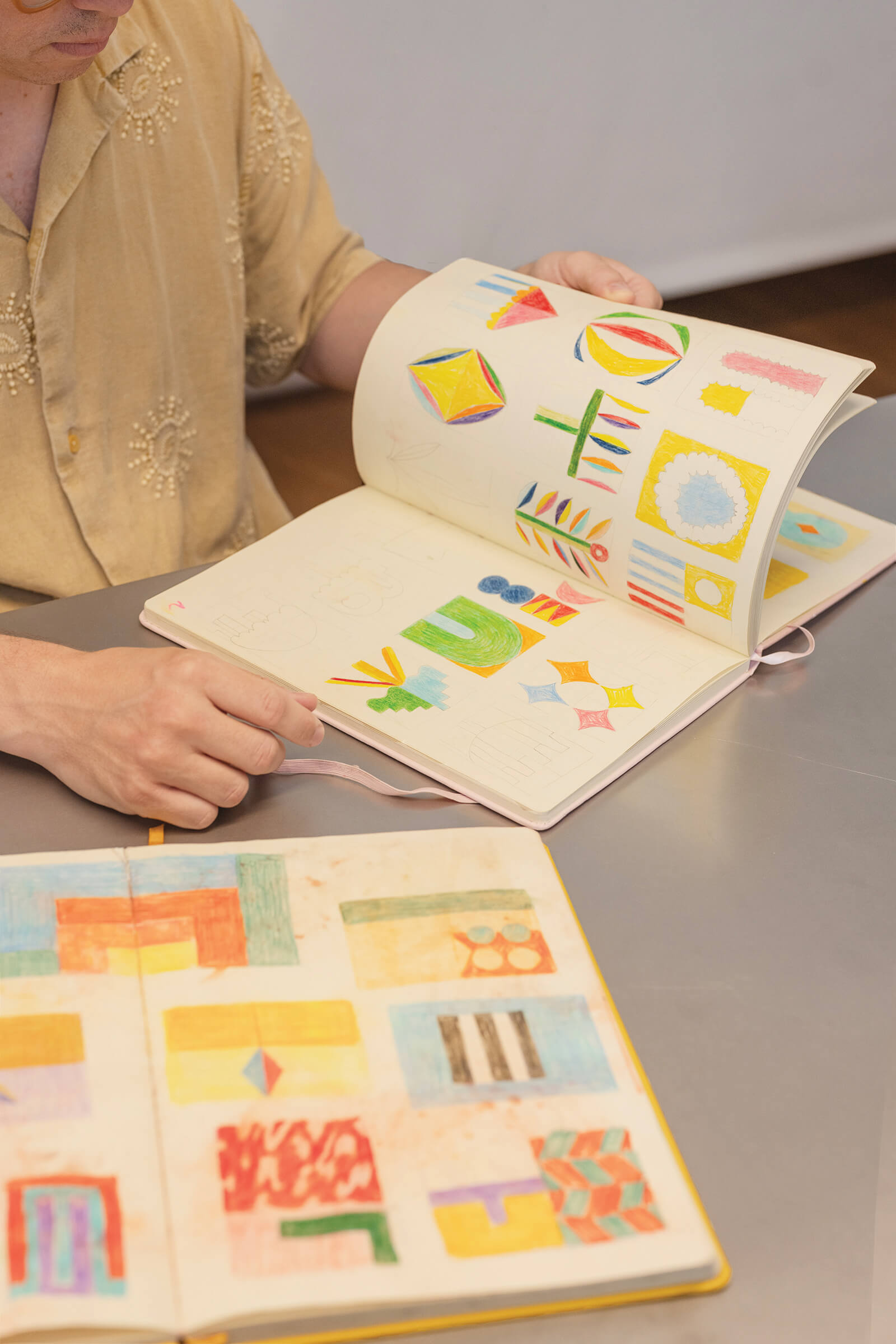Building a Better Future: An Interview with Farah Arabe

In the world of global development, where the foundations of tomorrow are built on the experiences of today, Farah Arabe stands out as a passionate advocate for the transformative power of early childhood relationships. With over a decade of experience spanning economic policy, strategy consulting, and global development programs, Farah has dedicated her career to creating a sustainable future by focusing on the most formative years of life.
After taking a five-year career pause to embrace full-time parenting, Farah returned to the professional sphere with renewed vigor and founded itotheN in 2019. Based in New York, this consulting firm harnesses the potential of early childhood development to drive meaningful change on a global scale. By working alongside families, schools, private sector entities, governments, and civil society organizations, Farah promotes positive childhood experiences that build resilience, enhance health, boost academic success, and foster economic productivity. Her work champions equity and responsible citizenship, laying the groundwork for more prosperous and harmonious societies.
.png)
In this exclusive interview, Farah Arabe shares her insights on the pivotal role of early childhood development in shaping a better world and her role as a Co-President of the Board for the Harvard Kennedy School Women's Network.
To begin with, what should we know about you? What are the key features you would like our readers to be aware of?
My name is Farah Arabe and I am, first and foremost, the blessed, full-time mother of two wonderful children aged 11 and 7. Originally from Peru, of Palestinian and French descent, I immigrated to the United States as a teenager for college. As expected, most of the learning happened outside the classroom, the result of exploration and self-discovery, with challenges becoming successes and lessons learned.
Professionally, as someone with a multi-cultural background, and troubled by the uneven distribution of well-being in the world, I felt compelled to dive into international development. I coupled my training in engineering and economics with my global outlook on life, to impactfully work in policy research, strategy consulting and global development programs. My contribution made a difference in people’s lives through the work of multilateral institutions, consulting firms and various non-profit organizations. It was a highly rewarding and successful stage of my career.
Today, I am a passionate advocate for the transformative potential of early childhood environments and relationships for sustainable global change. My focus at the moment is to help influence global policy-making narratives and incentives in favor of a more human connection-centered vision of prosperity.

Can you tell us more about founding itotheN and the work you do?
In 2013, I had my first child and nothing after that would be the same. “A baby changes everything” is a common phrase, but never had I taken the time to internalize the extent of its meaning. As a first-time mom, I experienced the challenges common to many mothers, even a universal, equalizing experience, I dare say- like mental health oscillations, imbalance of care responsibilities at home, nerve-racking questions about impeding career changes, isolation with no extended family or support system, not to mention an absolute revaluation of my own childhood and self. Simultaneously, I also experienced the greatest joy, gratitude, and connection to the universe through the love of my baby.
Unequivocally, research shows that positive early relationships foster long-term resilience, better mental and physical health, improved academic achievement, higher and more equitable economic productivity, more responsible citizenship, tighter communities, and an improved ability to be a parent to the next generation.
The deep relationship between my daughter and I became my center of gravity and the point of departure for all exploratory roads and decision-making in my life thereafter. At heart, convinced that responsive parenthood influenced humanity’s well-being, the curious policy consultant in me initiated a search for what science tells us about it. Unequivocally, research shows that positive early relationships foster long-term resilience, better mental and physical health, improved academic achievement, higher and more equitable economic productivity, more responsible citizenship, tighter communities, and an improved ability to be a parent to the next generation. As an international development practitioner, this sounded like a critical engine for global, sustainable change that I had never seen acknowledged -much less implemented or even considered- in my 10+ years of international development experience.

After five years of full-time parenting, in 2019, I founded itotheN, a New York-based, international development consulting firm that focuses exclusively on the early formation of the human mind and heart as a catalyst for global change. The international development and policy world needs to realign coordination efforts, funding, and strategic planning to optimize for early relationships that yield positive long-term outcomes. itotheN partners with various organizations to promote the existing research, build analytical frameworks and tools, and advocate, particularly in high-level international policy forums, for the prioritization of positive childhood relationships. Down the line, we look forward to using our research and advocacy experience to offer consulting products and services to governments and international organizations.
What was the goal you had in mind and how did it come into shape?
The mission of itotheN is to make our world happier, healthier, more peaceful and more prosperous through the promotion of a more science-informed, equitably shared and strategic effort in the early formation of human hearts and minds. To achieve this, itotheN's approach is to put the early formation of human minds and hearts at the center of societal priorities, government policies and development programs as catalyst for global intergenerational change.
We set out to build wide recognition around the subject of relational wealth and health in the early years. We have succeeded in establishing our organization as a promoter of early childhood relationships and parenthood for global development in high-level policy forums, particularly through discussions on the care economy, women’s equality, and global mental health. Further efforts, including to be a one-stop-shop for research on this multi-disciplinary and cross-sectoral topic, are on their way.

Back in 2020, one of our first technical goals was to build an index that would serve as analytical framework and measurement tool to assess and rank the quality of early environments and relationships for children around the world. Our first attempt was released in 2022, not without data challenges, but with interesting findings nonetheless. For example, most countries show higher scores in the “inner” layers of children’s environments, including the home, school and community norms, than on the “outer” policy environments, like mental health systems, safety, and economic well-being. The disparity between these two levels is more marked in lower income countries, where the policy environment, government support and economic formality are weaker. Yet, it gives us hope to see human connection alive despite sub-optimal environments and encourages us to continue investing in this vision.
This year, itotheN is looking for partners and individuals to develop a new, updated version of the index for 2025. We are also working to design and propose a mandatory child impact assessment for all international development projects and programs, just the way there are gender and environmental impact assessments. It is critical to harmonize the efforts across fields in international development, particularly with children’s mental health and relationships at the center.
What would be three single big problems you think our society is facing regarding early childhood?
Early childhood is a vast, multi-disciplinary and cross sectoral field that requires a systems-thinking approach, strategic coordination and funding, and, in my opinion, greater incorporation of behavioral and psychological sciences. If I would have to choose the biggest long-term, invisible threat to early childhood, I would say it is neglecting early childhood relationships as foundational to individual and societal flourishing. Unlike more common indicators of child development like nutrition, vaccination rates, or school enrollment, relationships are mostly dismissed, unmeasured and often simply ignored.
There is also insufficient direct, tactical support for parents to make responsive parenting easier, such as access to nurturing childcare assistance, home visitation programs, and science-based parenting education and coaching
Three of the biggest obstacles to increasing the centrality of positive early relationships in our society are the lack of awareness, of direct support, and of enabling environments. There simply isn’t enough knowledge of the impact of attachment and childhood experiences on brain architecture and other biological systems, or the intergenerational transmission of trauma and epigenetics, or even of our own selves and how our early childhood experiences shaped us. There is also insufficient direct, tactical support for parents to make responsive parenting easier, such as access to nurturing childcare assistance, home visitation programs, and science-based parenting education and coaching. Finally, most of us live in a social, work and policy environment that is not conducive to the prioritization of early relationships. For example: Work expectations and insufficient parental leave policies that impede organic, unburdened connection within the family; gendered norms that prevent a more equitable distribution of care at home; individualist societies that make community connection and support unavailable; purpose-lacking businesses that ignore their part in building human capital; and even well-intentioned campaigns that promote economic productivity at all costs.

Of course, there are exponential aggravators that are also themselves sources of chronic, toxic stress to families. For example, war, disease, extreme poverty and poor state capability make positive early childhood relationships even more difficult in many parts of the world.
What do you think we can do in all concentric circles, starting from ourselves, families, schools, societies, cities, governments to improve the lives of children and quality of childhood?
Using the analytical framework itotheN built, there are six areas across layers of the bioecological model that societies can work on to improve childhood relationships.
- Within the home, we need more responsive parenting, lower parent stress, and the parental leave and work-life balance necessary to establish secure attachment and trusting, unburdened connections.
- Immediately outside the home, we need tighter, well-integrated communities, schools where children feel they belong and are respected, and a drastic reduction in discrimination, racism or other forms of social exclusion.
- At the level of social norms, we need to promote a sense of respect for children’s agency, authenticity, and rights, as well as more uniform and emphatic disapproval of domestic violence against women and of violent disciplinary methods against children.
- In the health policy environment, we need to prioritize child and caregiver mental health by promoting satisfaction with parents’ work-life balance, decreasing stigma around mental health issues, and increasing access to high-quality mental health services.
- In the physical safety policy environment, we need to increase trust in protection systems, promote more responsible citizenship, and improve the quality and perception of neighborhood order.
- Finally, policy also needs to promote a comfortable socioeconomic level in the household, including through direct government support if needed, to enable families to connect without the stress of poverty, spend on child resources beyond basic necessities, and strive for a credible chance at upward economic mobility for the whole family.

Different countries have different pain points and priority areas, and efforts in the same thematic area can look different in different countries. But one thing that connects us all is our humanity: Working on our self-knowledge, awareness and inner development, can lead to improvements in all the areas above.
You have done it all, senior positions at big companies, parenting career breaks, entrepreneurship. Can you guide me through your feelings throughout all these changes? Many women are stigmatised for either choice, and feel guilty no matter what they do. Any advice on how to counter these feelings?
First, I would like to debunk the statement that I have “done it all”, although I do feel proud of the different ways I have embraced challenge, opportunity and growth. Changes in life inevitably generate changes in feelings. There is always self-doubt and fear of failure, fear of losing what was painstakingly earned, fear of not being able to let go.
When I first became a mom, I took maternity leave and then rejoined on a flexible schedule that allowed me to work reduced hours and from home. While I humbly recognize this was a privilege by our world standards, I still remember feeling a dark cloud over my head of undesired mental loads, deadlines and expectations. I just wanted to fully and meaning-fully with my baby. At one point, sitting on a conference call with baby simultaneously breastfeeding, I asked myself the question:
“Farah, would you rather have someone else take the baby so you can focus on your call, or have someone else take the call so you can focus on your baby?”
At this rubber-meets-the-road moment, I immediately and without hesitation knew the answer.
After five years of full-time parenting, coming back to work was not easy. I felt conscious about not being up-to-date with the latest in the industry, insecure about being cognitively capable of producing the quality work I used to before sleep deprivation entered my life, and -perhaps more terrifyingly- unsure about the value I put in my profession; after all, didn’t I already have the best and most important job in the world? Continuing and executive education courses gave me confidence in my intellectual capability to come up to speed, and consulting projects gave me reassurance of my expertise and productive capabilities. However, I quickly and undeniably realized that I was not the same international development specialist of five years back. While I was still determined to make this world a better place, and curious about the best mechanisms and policies to do so, my outlook was no longer one of economics, engineering or democratic systems. It was about how we relate to others and its impact on the world, starting with our very first relationships.

You mention guilt. Guilt, like all feelings, is telling us something about who we are, what we value, how we evaluate ourselves, where we may have a conflict between our authentic selves and what we externally pursue and do. Unlike what many others recommend, I do not practice countering “negative” feelings, rather listening to them to understand what they specifically mean to me. Often being emotionally attuned to my children’s needs was misinterpreted by others as guilt. In my view, there is a difference between “I have to go be with my child because I feel bad for being the cause of their pain” and “I have to go be with my child because my heart wants and needs that to be complete”. The former is a protective feeling that prevents us from neglecting or abusing our children; the latter is the natural desire of an emotionally present and attached parent. Perhaps two sides of the same coin, but one pulls you away from something bad while the other pushes you towards something good.
I have learned that feelings are the language through which our inner self communicates. In my trajectory, feelings have been the compass that directs choices and change in a way that has helped me attain and maintain a sense of alignment and authenticity. I can attest from lived experience that left unattended, feelings can become toxic; acknowledged and processed, they have a healing and reinvigorating effect. Because of that I strongly wish for all women and parents to have mental health support, time for self-exploration, and agency for independent decision-making as pillars of well-being and that of our children.
You are the co-president of the board of Harvard Kennedy School Women's Network. How far have we come in empowering women and why is it important to be a soldier of this mission?
The mission of the Harvard Kennedy School Women’s Alumni Network it to connect, support and amplify women in policy and the greater good. Through curated global programming, we build relationships across geographies, cultures and areas of work. Our 40 chapters around the world localize our mission, meaningfully connecting approximately 8,000 HKS grads, all striving to live-out-loud the “ask what you can do” spirit of our school. In the past two years, key partnerships have enabled us to mobilize our network for real-world policy impact at the highest multilateral levels, including in climate and gender, the care economy and women’s entrepreneurship. It is truly an honor to co-preside this organization and share the table with such an inspiring group of women.

The world has certainly made progress around women’s rights and opportunities, but not far, fast or equitably enough. In varying degrees, we still face unequal pay for equal skills, unequal distribution of care responsibilities at home, arbitrary social norms that restrict freedom of choice, and unequal treatment before the law, among many other unsettling realities. Today, we even talk about a backlash against women’s advocacy that results from, among other factors, the political stereotype of feminism as a homogeneous, radical, often counter-cultural force of imposed change.
I view women’s empowerment as a personal, bespoke, unique pilgrimage inside each of us to uphold our value and contribution to the world. Personally, I believe that we should not only measure women’s societal participation vis-à-vis that of men’s, but also value women’s unique contribution in absolute terms. Consequently, I often advocate for motherhood in global policy efforts, because supporting mothers means supporting and empowering all of humanity.
It is important for each of us to be soldiers of our own human value. Together we are an army of compassion, intelligence, courage, healing, nurturance, and human connection. And isn’t that what the world needs?

Stay Connected with Bubu Island
Subscribe to our newsletter for the latest updates and tips on early childhood development.

Explore Our Latest Insights
Discover tips and activities for young children.


.jpg)


